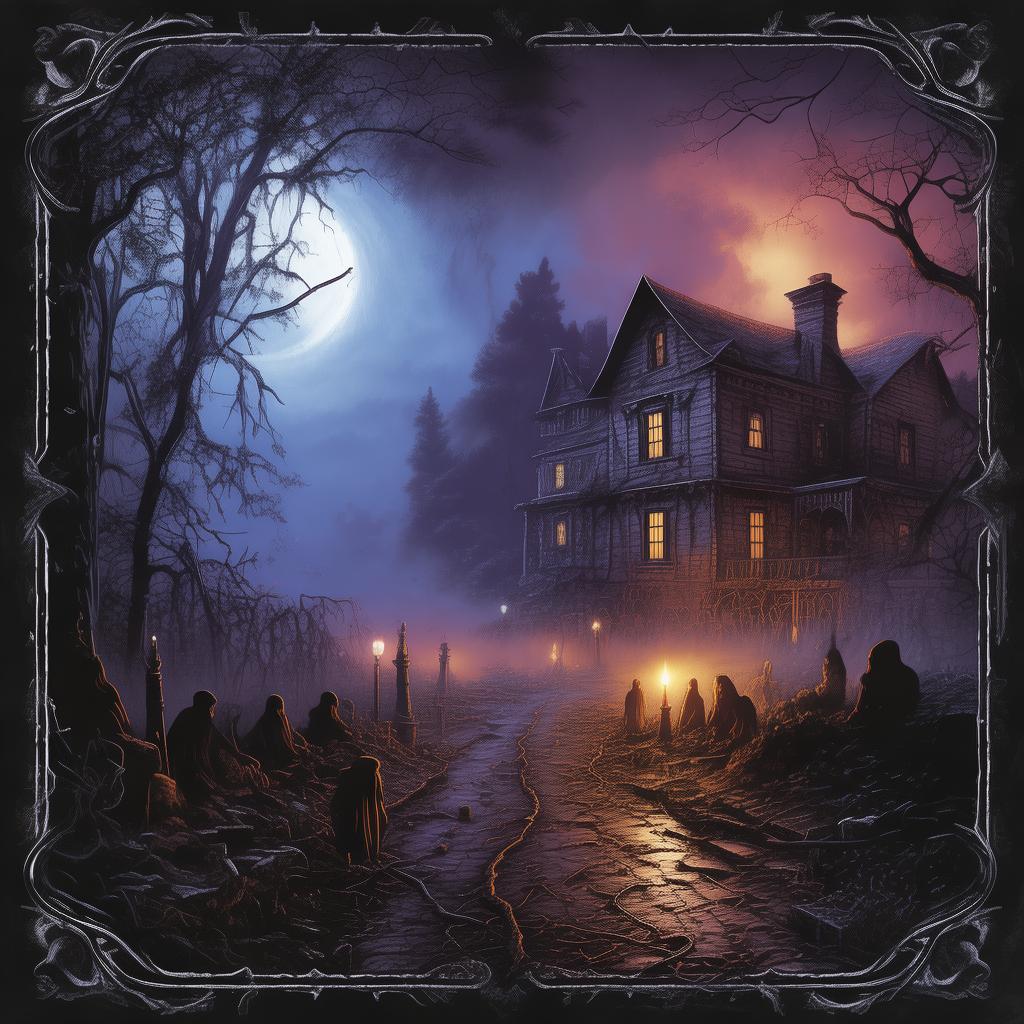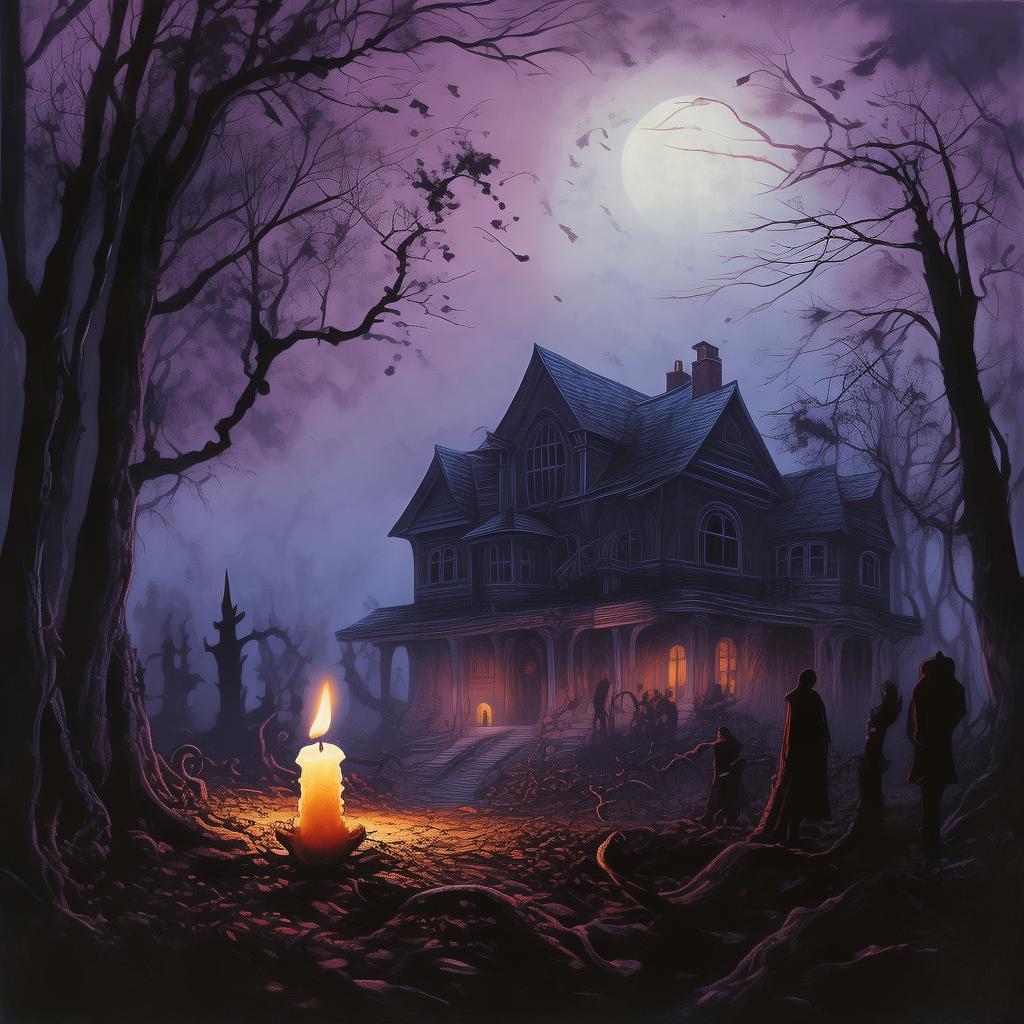The Symphony of Shadows: A Censored Narration
In the heart of a sprawling metropolis, the old, abandoned Symphony Hall stood as a silent sentinel to the city's forgotten past. Its grand facade, adorned with the faded glory of a bygone era, was a stark contrast to the dilapidated state of its interior. The hall had seen better days, its once vibrant concert halls now reduced to cavernous spaces echoing with the echoes of the past.
The story began with Zhang Zhen, a young music critic with a penchant for the obscure and the unusual. Drawn by tales of the haunted Symphony Hall, he ventured into its depths one rainy night, seeking inspiration for his next article. Little did he know that his journey would lead him to the edge of madness and the heart of a dark conspiracy.
As Zhang navigated the labyrinthine corridors, the air grew thick with a palpable sense of dread. The hall was eerie, the silence punctuated only by the distant sound of dripping water and the occasional rustle of unseen creatures. He found himself in a small room at the end of a long, dimly lit hallway, the walls adorned with portraits of classical musicians, their eyes watching him with an unsettling intensity.
In the center of the room stood an old, ornate piano, its keys worn and its frame slightly askew. Zhang approached the piano, his fingers trembling as he touched the keys. The piano played a haunting melody, a symphony of shadows that seemed to resonate with the very walls of the hall. The notes grew louder, more desperate, and Zhang felt an inexplicable urge to run.
But it was too late. The piano's melody had taken hold of him, and as the final note echoed through the room, Zhang found himself standing before a mirror. In the reflection, he saw not himself, but a figure clad in a long, flowing robe, a ghostly apparition that seemed to move with the rhythm of the music.
"Who are you?" Zhang demanded, his voice barely above a whisper.
The figure turned, revealing a woman with eyes that seemed to pierce straight through his soul. "I am the Censored Narrator," she replied, her voice a chilling melody that seemed to resonate with the music of the symphony. "I have been waiting for you."
Zhang's heart raced as he realized the woman was no ordinary specter. She was a guardian of the Symphony Hall, a being that had been bound to the music for centuries. The Censored Narrator explained that the symphony held the key to unlocking the censored narratives of the past, narratives that had been suppressed and hidden away for generations.
As the music continued to play, the Censored Narrator began to recount stories of love, loss, and betrayal, stories that had been buried beneath the layers of time. Each story was a piece of the puzzle, a glimpse into a world that had been long forgotten.

One story, in particular, caught Zhang's attention. It was the tale of a musician who had been silenced by the ruling elite, his music and his life destroyed in an act of censorship. The musician's spirit had been trapped in the symphony, his suffering and his longing for freedom a haunting reminder of the power of censorship.
As the Censored Narrator's tale unfolded, Zhang felt a growing sense of urgency. He realized that the symphony was not just a collection of forgotten stories, but a call to action. It was a reminder that the truth, no matter how dark or disturbing, must be told.
With newfound resolve, Zhang set out to uncover the hidden narratives of the Symphony Hall. He delved into the city's archives, interviewing those who had witnessed the dark side of the metropolis. His research led him to a web of corruption and deceit, a world where the line between truth and lies was as blurred as the edges of the symphony.
The climax of the story came when Zhang discovered that the Censored Narrator was not just a spirit, but a symbol of the resistance against censorship. The symphony was a tool, a way to expose the truth and to empower the people to fight for their right to freedom of expression.
In the end, Zhang's journey led him to a final confrontation with the forces of censorship. The symphony played in the background, its haunting melody a constant reminder of the struggle for truth. With the Censored Narrator by his side, Zhang stood up against the oppressive regime, his voice echoing through the halls of the Symphony Hall.
The story ended with Zhang emerging victorious, the symphony a beacon of hope for those who had been silenced. The Symphony Hall, once a place of fear and mystery, had become a symbol of freedom and resilience. The Censored Narrator's spirit had been freed, and the symphony continued to play, a testament to the enduring power of truth and the indomitable spirit of those who fight for it.
✨ Original Statement ✨
All articles published on this website (including but not limited to text, images, videos, and other content) are original or authorized for reposting and are protected by relevant laws. Without the explicit written permission of this website, no individual or organization may copy, modify, repost, or use the content for commercial purposes.
If you need to quote or cooperate, please contact this site for authorization. We reserve the right to pursue legal responsibility for any unauthorized use.
Hereby declared.









